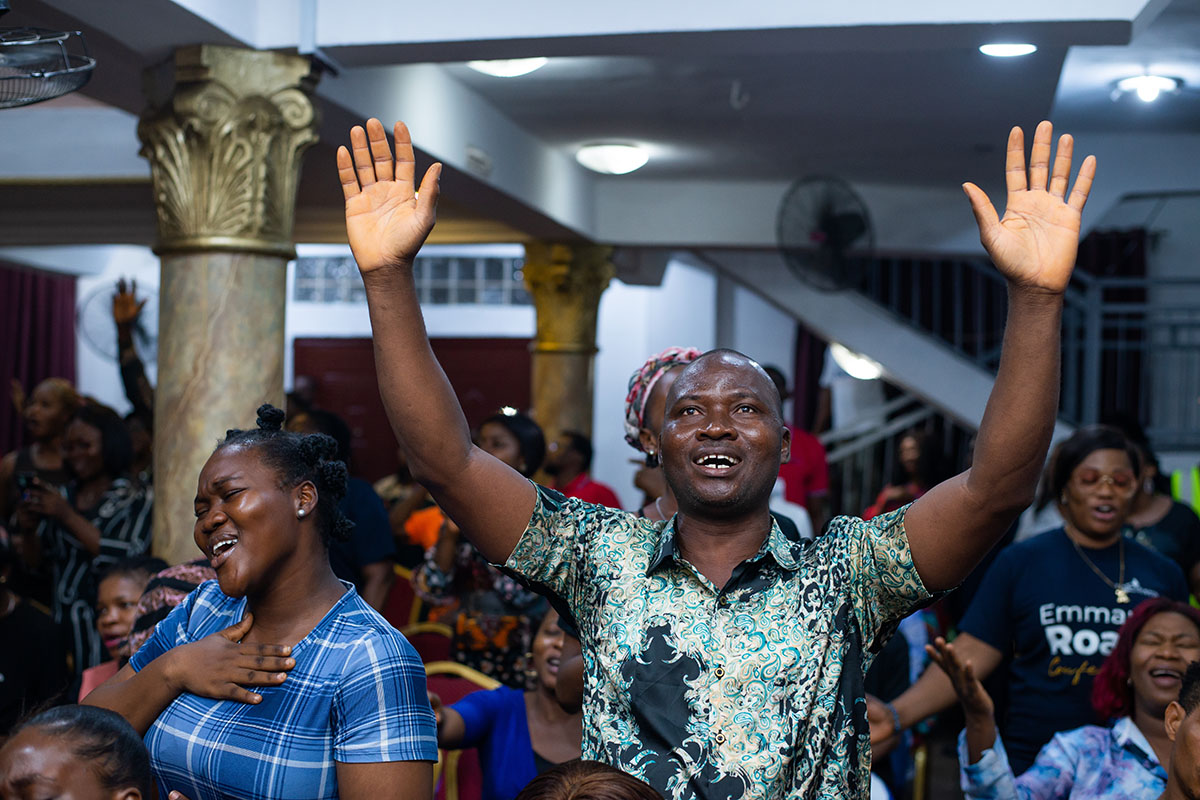[
by Lilian Efobi
When bullets stormed through the farms of the middle belt in Nigeria, it wasn’t just homes that burned. Lives were uprooted, villages emptied, communities displaced and Christian farmers became refugees in their own country. What happens when the state fails in her duty to protect its citizens? In some parts of North-Central Nigeria, the church becomes the face of relief and hope for the people.
Attacks on the Christian community have risen amid a wider increase in violence targeting civilians around the country: total civilian targeting increased by 28 per cent from 2020 to 2021, and this trend has continued into 2025. Despite the spike in anti-Christian attacks, the Christian community is not one of the predominant targets of political violence in Nigeria. While Christians make up roughly 50 per cent of the population, violence in which Christians have been specifically targeted in relation to their religious identity comes from various sources such as extremist groups like Islamic state, Boko Haram as well as Fulani-herders conflict.
Nigeria’s north-central region has experienced a prolonged crisis of historical tensions between farmers and herders, as well as ethnic and religious groups, often leading to conflicts, attacks, and banditry or ‘hirabah’. These incidents may involve kidnapping, theft along major highways, massacres, attacks on places of worship and targeted persecution. The crisis has intensified in recent years, resulting in widespread displacement across the north-central regions, especially states like Benue, Plateau, Nassarawa, Kogi, etc. Between 29 May and 1 June 2025, multiple incidents of farmer-herder clashes and communal clashes occurred across five communities in the local government areas (LGAs) of Apa, Gwer East, Katsina-Ala and Makurdi in Benue State. Guess who showed up when global NGOs and government agencies struggled to reach remote farms and villages before and even after the attacks? Local church networks stepped into the void not as charity slick campaigns, but as community-enabled responders.
The power of local faith networks in displaced communities speeds up relief assistance. Relief must reach people before disease spreads, before hunger takes hold, and before secondary displacement occurs. Churches and faith-based organisations (FBOs) in Nigeria already have built trust, infrastructure, and local knowledge. They know the roads, the farms, the leaders and more.
According to Iweze 2022, FBOs in Nigeria played a proxy role not only delivering food or shelter, but connecting Internally Displaced Persons (IDPs) to protection services and counselling. In North-Central Nigeria, the same pattern holds. Church networks organise relief convoys, coordinate temporary shelters, map displaced households using phone calls and community lists, and even mediate with local authorities on behalf of displaced Christians. They are vertical links between grassroots victims and humanitarian systems.
Why is this relevant for displaced Christians? Most of the communities targeted are Christian communities, which in turn drives displacement and social upheaval. Churches that are actually and should be safe spaces for prayer, support, counsel, and help for displaced people have also become targets of attacks. Many of the attacked communities are Christian-majority farming villages. Despite this, the church still plays a key role in providing relief for displaced communities as victims rely on their churches for safety before formal relief from NGOs and other agencies arrives. Therefore, humanitarian response must never ignore faith-based agencies as they are the prompt bridge to local government, not only as relief support but also as informal justice mediators.
The numbers always tell a story, same as the satellite images and event databases that put more context to the numbers, however, between the lines lies a human catastrophe. For example, hundreds of villages can vanish without leaving ground reports. Sometimes, remote sensing suggests more settlement abandonment than the data shows.
What then is the way forward? Displacement is a phase, returning home, another phase and integration into the community is also another phase. The above phases are crucial to finding durable solutions to the displacement of people. There is also the fear of repeat violence in the different phases, and this is where the FBOs come in to provide counselling and support with other concerned agencies such as the security personnel. However, this also raises certain policy questions, such as: partnership of formal humanitarian agencies with the church, upholding of human rights and equality amidst crisis, and scaling church-led relief to all displaced people with none left as an exception.
As individuals, we have roles to support FBOs in their work and also combat displacement by sharing verified stories of displaced communities, advocate for policies that recognise Faith agencies as key part of humanitarian relief, and also follow platforms such as ACLED and IOM DTM for verifiable data and updated information on communities attack and displacement:
When the state is silent to the challenges of its people by failing to protect her citizens, then communities will arise in her place or over her duties. The church, through organisations such as CAFOD, Global Christian Relief Network, Christian Aid and many more, has made the church become more than a sanctuary but also a lifeline for terrorized communities and displaced people. Sometimes when communities burn, the first vehicle of relief you see is a church van before a red cross van.
The post Faith in the Crossfire: How Church Networks Are Saving Displaced Nigerians appeared first on YourCommonwealth.
Teen emotions, problems, helth and and social Issues, Teen Health, Teen Social - Article Source
#Faith #Crossfire #Church #Networks #Saving #Displaced #Nigerians

